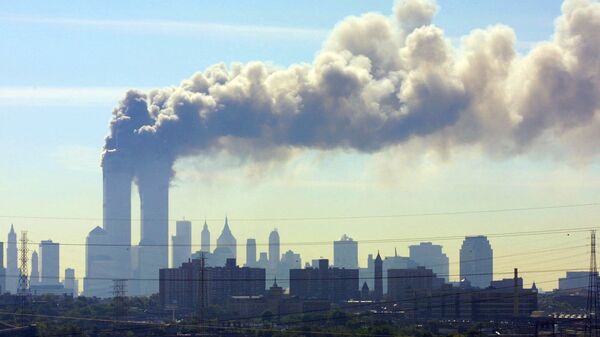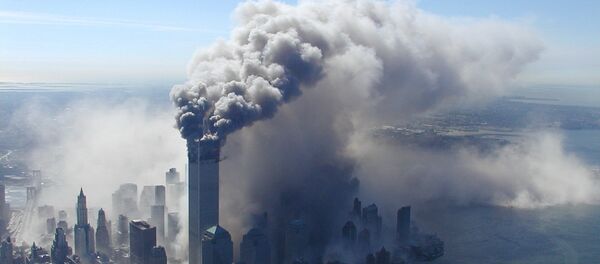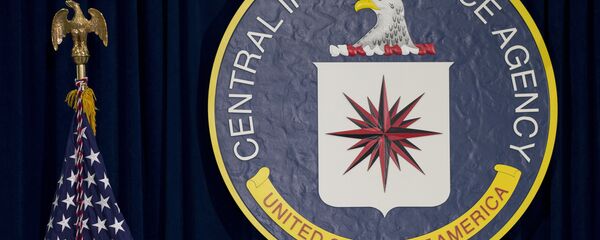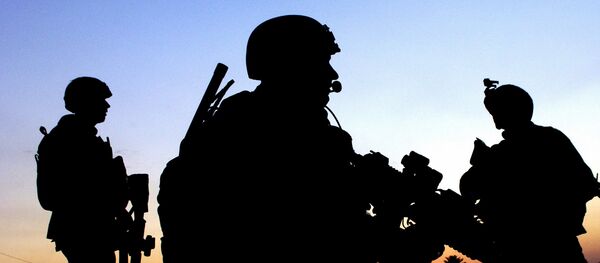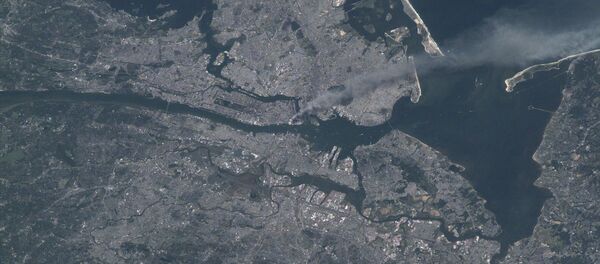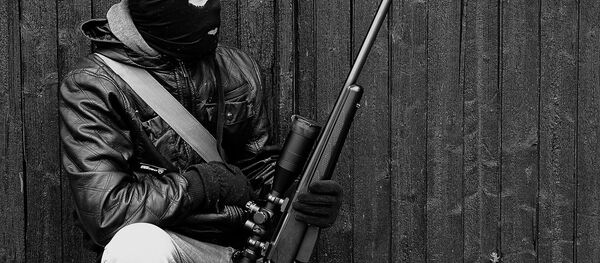On Radio Sputnik's Loud & Clear Tuesday, hosts Brian Becker and John Kiriakou spoke with Ray Nowosielski and John Duffy, about their new book: "The Watchdogs Didn't Bark: The CIA, NSA, and the Crimes of the War on Terror," and some of the shocking facts it brings to light about how competition between intelligence agencies for information overlapped with the creation of "a little crucible" in California for two key 9/11 hijackers by figures with high-up connections in the Saudi state in the year before the attacks, and that those same people were allowed to keep their jobs and advance in the CIA.
Nowosielski asked, "Why are people who failed so terribly and made such bad decisions that cost so many lives not only still in their positions now, but why were they able to go on to so many other things?" He noted subsequent programs the people in question participated in, including the torture and "renditions of innocent people," and that those employees "continued to rise up into the highest ranks of the agency."
"With so many mechanisms of accountability in this country that have been created with good intentions, how is it that certain bad actors seem to have been able to get through all of them, with regard to 9/11 and the War on Terror?"
"As usual, you can blame the media," he said. Nowosielski noted how a human rights abuser, Alfreda Bikowsky, was named in the 2005 Inspector General's Report on CIA accountability and the September 11 attacks and in the 2012 Senate Intelligence Committee's report on CIA Torture, as well as being involved in "all kinds of different things," but it wasn't until Nowosielski and Duffy made an effort to get her name out, and a couple of "muckraking blogs" and journalists wrote about it, that her story was given any attention. However, Nowosielski said, none of the major media outlets or newspapers have written about her at all, outside of passing mentions in a couple of articles.
"Where does accountability come from?" Nowosielski asked rhetorically. "Ultimately, the public decides what things reach the bar where they say they're gonna push their congresspeople or they're gonna push their leaders to hold someone to account, whether that means a firing or whether they think that rises to the level of prosecution; and we weren't given the information by the media, and still aren't being given the information. So how can one expect accountability?"
Duffy told Sputnik that while chasing a footnote in the 9/11 Commission Report noting that vital information about the 9/11 hijackers was not passed from the CIA to the FBI, he and Nowosielski interviewed former National Coordinator for Security, Infrastructure Protection and Counter-terrorism Richard Clarke, who served under former US presidents Bill Clinton and George W Bush, in 2009, and Clarke made some explosive accusations.
Clarke, having pieced together evidence, hypothesized to Duffy and Nowosielski that "the fact that he was not receiving very specific information and updates, when every day when he turned on his computer, he was getting a flood of CIA reports and information, he thought he had to have been specifically taken out of the loop on the issue of… Nawaf al-Hazmi and Khalid al-Mihdhar," two of the 9/11 hijackers who later helped seize American Airlines Flight 77, which they subsequently flew into the Pentagon, "coming to the United States after they had left the Malaysia terror plotting meeting… [Clarke] basically makes the hypothesis that he believes the CIA — and specifically the Alec Station unit, with the blessing, the go-ahead of [then-Director of Central Intelligence] George Tenet — to try to flip these guys when they got to the United States, most likely with the assistance of Saudi intelligence proxies."
Alec Station, or the Bin Laden Issue Station, was a CIA unit tasked "to track [bin Laden], collect intelligence on him, run operations against him, disrupt his finances and warn policymakers about his activities and intentions," as Tenet described it in the 9/11 Commission Report. The head of that unit? Alfreda Bikowsky.
Nowosielski said they "interviewed an FBI agent named Mark Russini, who was inside CIA's Alec Station at the time and was specifically ordered, when those two hijackers came over to LA, [he] tried to pass that information to the FBI [and] was told, ‘This is not a matter for the FBI,'" Nowosielski said. "They were so territorial that they were not making decisions that made sense."
Nowosielski noted that during the summer of 2001, that same CIA officer who ordered the information not to be shared between agencies was coming up against the same obstacle himself as he began to piece together evidence from a number of episodes, including the October 2000 bombing of the USS Cole by al-Qaeda in the Yemeni port of Aden, and realizing that the FBI needed the information his agency had. "He sends an email… where he seems to be begging the folks back at his old office at Alec Station to pass it. They still don't."
Nowosielski noted that one week before the attacks, on September 4, 2001, a principals meeting that Clarke had been pushing for since the very beginning of the Bush administration happened. "We can't know what [Tenet] knew prior to August 2001, but we know that his office was updated about the reality of those two future hijackers, those two al-Qaeda summit attendees, being in the US, in late August, because a search had begun for those men, initiated by his counterterror office. And he also had been updated about Zacarias Moussaoui being arrested trying to learn to fly planes under suspicious circumstances in Minnesota. Did he mention either of those two things to Richard Clarke or [then-National Security Adviser Condoleezza] Rice and the national security team? No, he didn't."
He said that independent of anything else like motive, "you just need to know that to become really angry that Tenet got to keep that job for another three years and that some of the employees that withheld that information are still working on the War on Terror, to this day, from CIA headquarters."
Kiriakou, a former CIA agent himself, noted that "literally all of them" have been promoted.
Moving on to the question of Saudi Arabia, from which 15 of the 19 hijackers hailed, Duffy described a convoluted situation that ensued in 2000 after al-Hazmi and al-Mihdhar arrived in California and struck up a seemingly innocent conversation at a Los Angeles restaurant, except the man wound up financing their entire move to San Diego, including find them an apartment and paying their deposit and first month's rent. Duffy noted that "that gentleman, right before he went to that restaurant, happened to meet with a Saudi consular official in Los Angeles, who also happened to be involved in a radical Islamic mosque there in California."
Once set up in San Diego, al-Hazmi and al-Mihdhar are helped by a man named Omar el-Bayoumi with tenuous ties to the Saudi government who was receiving large amounts of cash, including checks sent by Princess al-Haifa bint Faisal, the wife of then-Saudi ambassador to the US Prince Bandar bin Sultan and the daughter of King Faisal, a previous Saudi monarch. "It's like these guys, Bayoumi, are essentially assets, somehow, of Saudi intelligence. And money is coming from somewhere in Saudi Arabia to go to these people who are creating a little crucible to contain these would-be hijackers in California."
Nowosielski said that the thing that strikes him is that, even if you "assume that nobody knew this was the reality," meaning in US intelligence, "before the 9/11 attacks went off, but when almost 3,000 people die, when does the Bush administration, when do FBI investigators start to piece this together? And we sort of, we're able to kind of unearth a lot of that story in the book."
"Over the course of late 2001 and throughout 2002, bit by bit they, keep finding more and more evidence like what John just described [Kiriakou previously noted that when he helped capture suspected al-Qaeda leader Abu Zubaydah, Zubaydah had several Saudi princes in his address book who all subsequently disappeared or died under mysterious circumstances] that seemed very suspicious, connected to very high level Saudis and connecting them to these hijackers in particular that the CIA also had an issue with passing information on about, Mihdhar and Hazmi."
Nowosielski noted that this information made its way through Congressional investigations, intelligence committees and the attorney general, with the report eventually being given to Bush. "So what does Bush do? Bush sits on it, and during that same period, President Bush famously convinces a majority of the country we need to invade Iraq."
